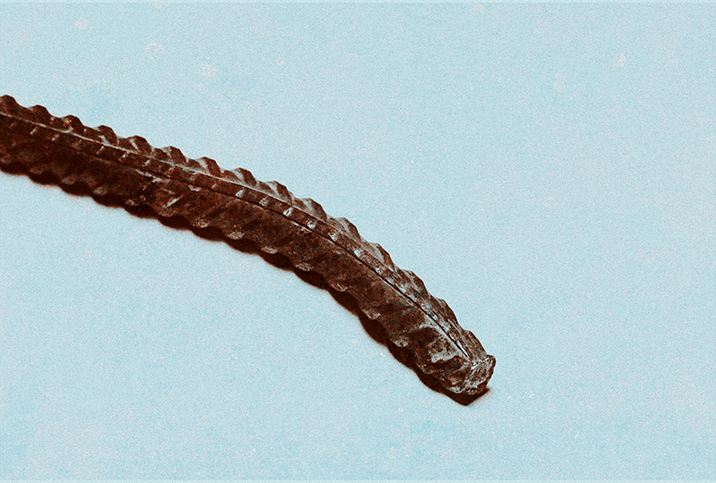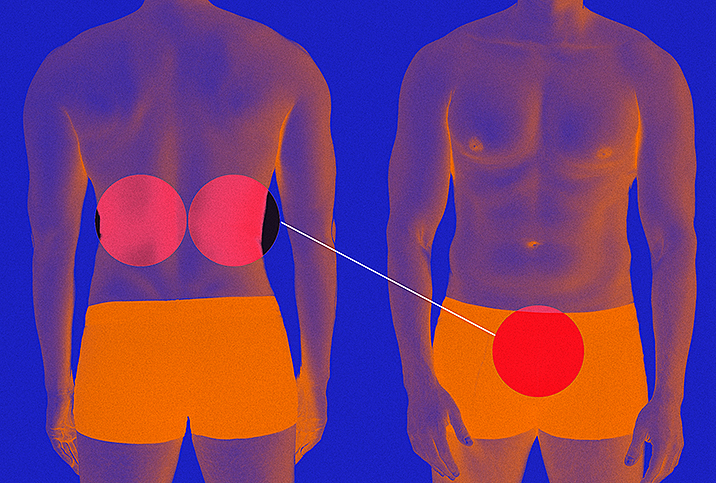Is Too Much Iron Giving You ED?

Pumping iron and other forms of exercise can do wonders for your body, from helping you maintain a healthy weight to staving off erectile dysfunction (ED) associated with heart disease. Too much iron in the body though? That's a condition called hemochromatosis, which might be to blame for your erectile dysfunction. Here are the causes, symptoms and treatment options for hemochromatosis.
What is hemochromatosis?
Iron is essential for the production of healthy red blood cells. However, too much iron can lead to health problems. People with hemochromatosis store excessive amounts of iron in their blood.
Primary hemochromatosis is an inherited genetic condition. Hemochromatosis may also result from a blood transfusion, liver disease, a diet excessively high in iron or another genetic blood condition called thalassemia, which occurs when your body contains a lower level of hemoglobin—the oxygen-bearing protein in your blood—than normal. Secondary hemochromatosis is the term given to the condition when it arises from these non-inherited causes.
How is hemochromatosis diagnosed?
Hemochromatosis can go unnoticed because not everyone with the condition experiences symptoms. If you do have symptoms, they are easily mistaken for other health issues. The general symptoms of hemochromatosis include:
- Feeling weak and tired
- Joint pain
- Stomach pain
- Unexplained weight loss
Your doctor will order blood tests to check your iron levels and other blood characteristics, such as transferrin and ferritin levels, to diagnose hemochromatosis. Genetic testing can verify the presence of primary hemochromatosis, specifically in certain mutations of the gene referred to as HFE. When reviewing your family and personal medical history, your doctor will look for issues associated with hemochromatosis, such as:
- Alcoholism
- Arthritis
- Diabetes
- Erectile dysfunction
- Heart attack
- Liver disease
If left untreated, hemochromatosis can take a severe toll on systems throughout the body, causing heart failure, liver cancer and other serious ailments. If detected early, however, it is a very treatable condition.
How does hemochromatosis cause ED?
A meta-analysis concluded that nearly 50 percent of study participants with hemochromatosis experienced sexual issues, including erectile dysfunction and low libido. Multiple factors of hemochromatosis contribute to problems with the reproductive system, because the condition damages the pituitary gland (which regulates hormones) and the testicles. Sometimes, men may experience ED for years before they are correctly diagnosed with hemochromatosis, as indicated in a study by researchers at the University College London Medical School.
How to prevent irreversible damage
If you struggle with ED, don't delay in heading to the doctor to discuss your issues. As there are many potential causes of ED, getting a comprehensive exam will help you get the right diagnosis and treatment before too much time has passed, which can cause irreversible organ damage in the case of hemochromatosis. As you're being evaluated for ED, make sure your doctor checks your serum ferritin levels and screens you for hemochromatosis.
How is hemochromatosis treated?
Management of primary hemochromatosis involves removing blood from your body through a vein in your arm to bring iron levels into a safer range. To start, you may need to give a pint of blood one to two times a week at your doctor's office, a clinic or the hospital. After a few treatments, you should be able to go for appointments less often, usually every two to three months, though this may vary from person to person.
Secondary hemochromatosis may be managed through chelation, a process of binding iron from the blood with medication, which is then excreted from the body in urine or stool. You may be given chelation medicine through an injection or a pill.
People with hemochromatosis should avoid alcohol and vitamin C supplements, which can increase iron levels. You'll also need to watch out for multivitamins that may contain iron or vitamin C. As hemochromatosis can raise the risk of infections, seafood and shellfish should be thoroughly cooked to reduce the risk of food poisoning.
Since excessive iron lowers sex hormone levels, hormone therapy may be an effective treatment in some cases of ED or low libido. Unfortunately, people with liver damage may not be good candidates for this option. Treatments that reduce blood levels of iron cannot get rid of the iron that's already been deposited into the pituitary gland, making certain effects of hemochromatosis irreversible.
Seeking early treatment for ED or other sexual problems will give you the best chance of avoiding the long-term consequences of undiagnosed hemochromatosis.


















